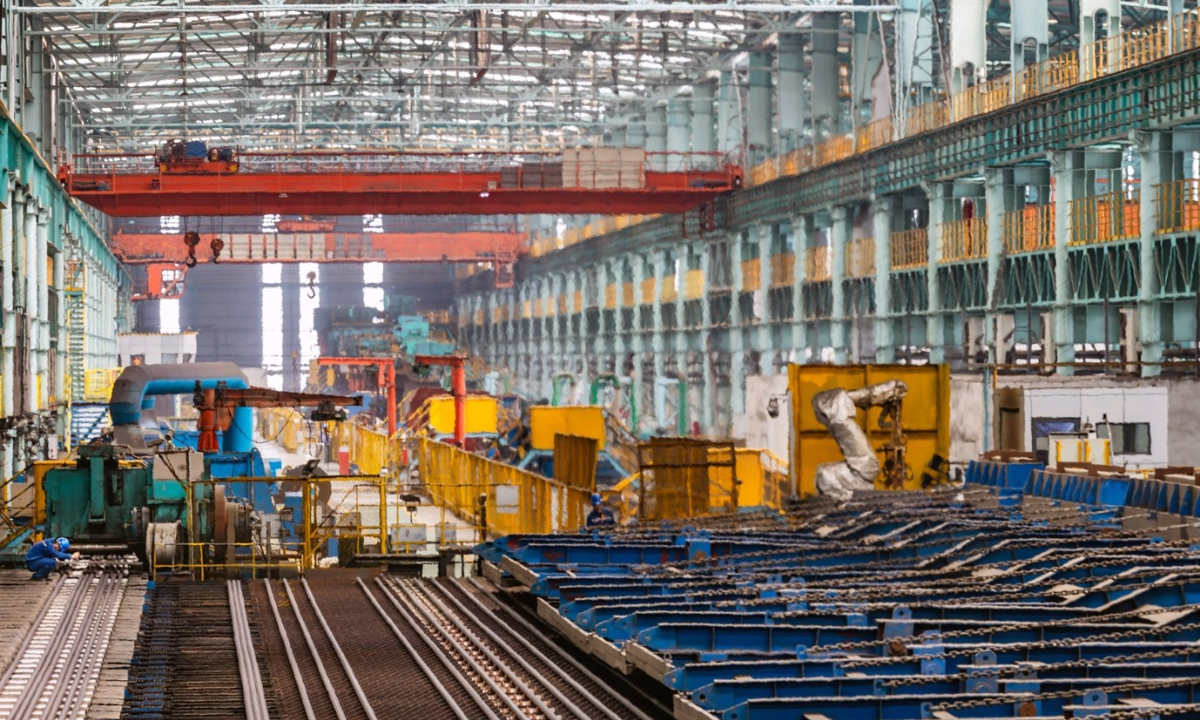
Workers produce special steel products at the production workshop of China Baowu Steel Group Corporation in Ma'anshan, East China's Anhui Province on April 23, 2025. Photo: VCG
The US Department of Commerce announced on Tuesday (local time) the inclusion of 407 additional product categories in its steel and aluminum tariffs list — each now subject to a 50 percent duty on their metal content. The move will weigh heavily on US companies and undermine the stability of global supply chains, a Chinese expert said on Wednesday.
The latest action covers wind turbines and their parts and components, mobile cranes, bulldozers and other heavy equipment, railcars, furniture, compressors and pumps, and hundreds of other products, the department said on its website.
US Undersecretary of Commerce for Industry and Security Jeffrey Kessler asserted that the move broadens the scope of steel and aluminum tariffs and blocks circumvention, aiming to support "the continued revitalization of the American steel and aluminum industries."
Zhou Mi, a senior research fellow at the Chinese Academy of International Trade and Economic Cooperation, told the Global Times on Wednesday that Washington's latest tariff expansion is primarily aimed at what it sees as insufficient protection for its domestic steel and aluminum industries.
He noted that many of the newly listed items, such as wind turbines, mobile cranes and railcars, are sectors where China holds strong production capacity and global competitiveness.
"In the short term, it is unrealistic for the US to quickly rebuild comparable capacity at home, nor do many other countries have the same strength. This means Chinese products will remain crucial, but the tariffs are likely to push up export prices to the US," Zhou explained.
According to Zhou, the immediate impact is not necessarily a loss of market share for Chinese exporters, but rather a shift in pricing dynamics. "Exporters and US buyers will have to renegotiate how to share the burden of higher costs. This could complicate trade relations and add friction to the supply chain," he noted.
Zhou cautioned that the move could destabilize global supply chains and weigh heavily on US downstream industries. "For American project developers, infrastructure operators and investors, such as in ports and energy facilities, higher costs will translate into greater pressure. While China will feel the impact, the broader outcome is uncertainty for supply chain stability, and the real test will be how both sides adapt in the months ahead," he said.
China has long opposed the US tariff measures. In April, commenting on the US tariff hikes on all steel and aluminum imports, He Yongqian, a spokesperson of the Chinese Ministry of Commerce, said that the US actions are typical examples of unilateralism and protectionism.
"This severely harms the interests of all countries, seriously undermines the rules-based multilateral trading system, and impacts the global supply chain," He said, noting that many countries have clearly expressed their opposition, and there is significant opposition within the US as well.
Global Times
阅读原文:https://www.globaltimes.cn/page/202508/1341299.shtml